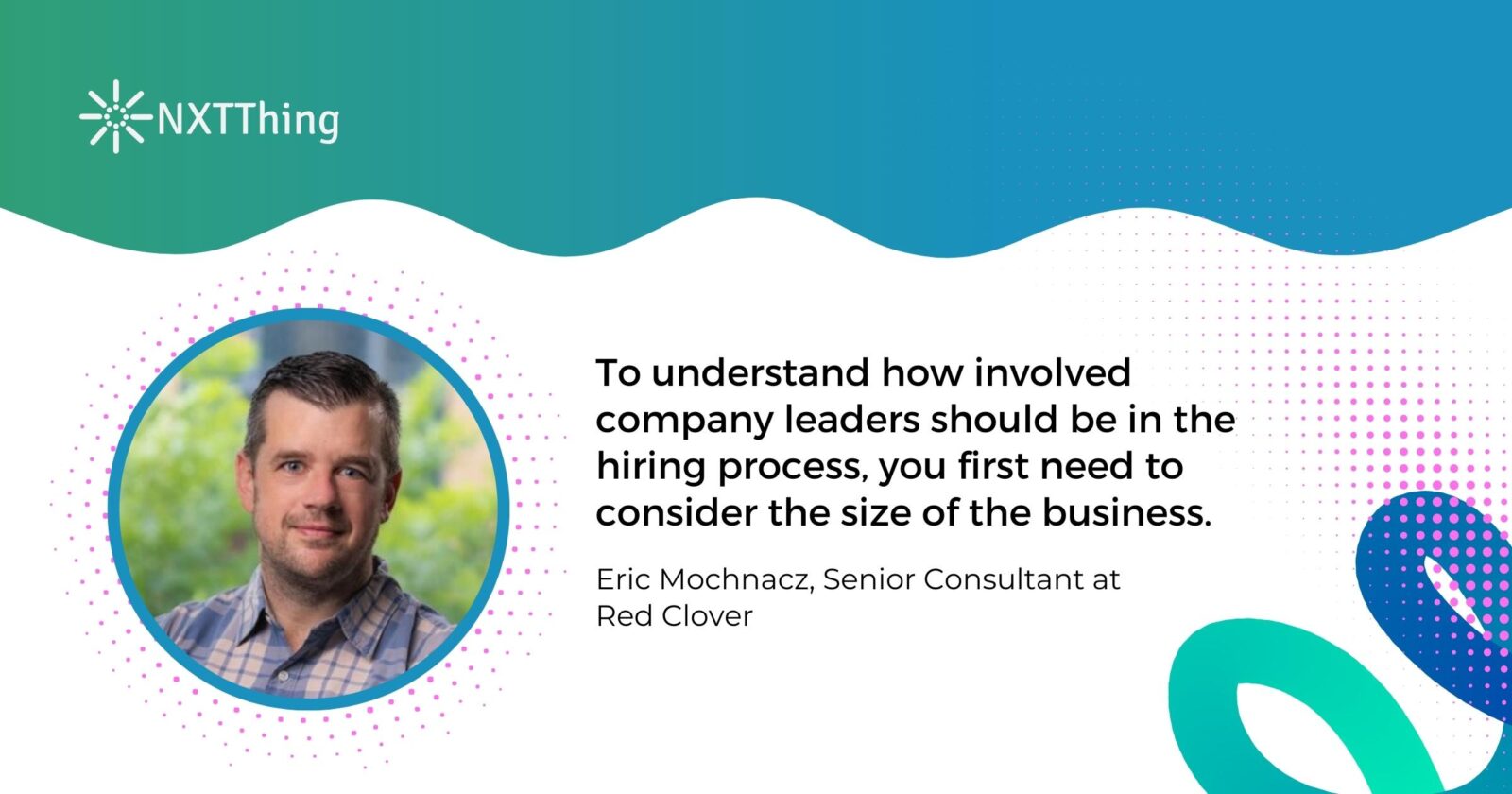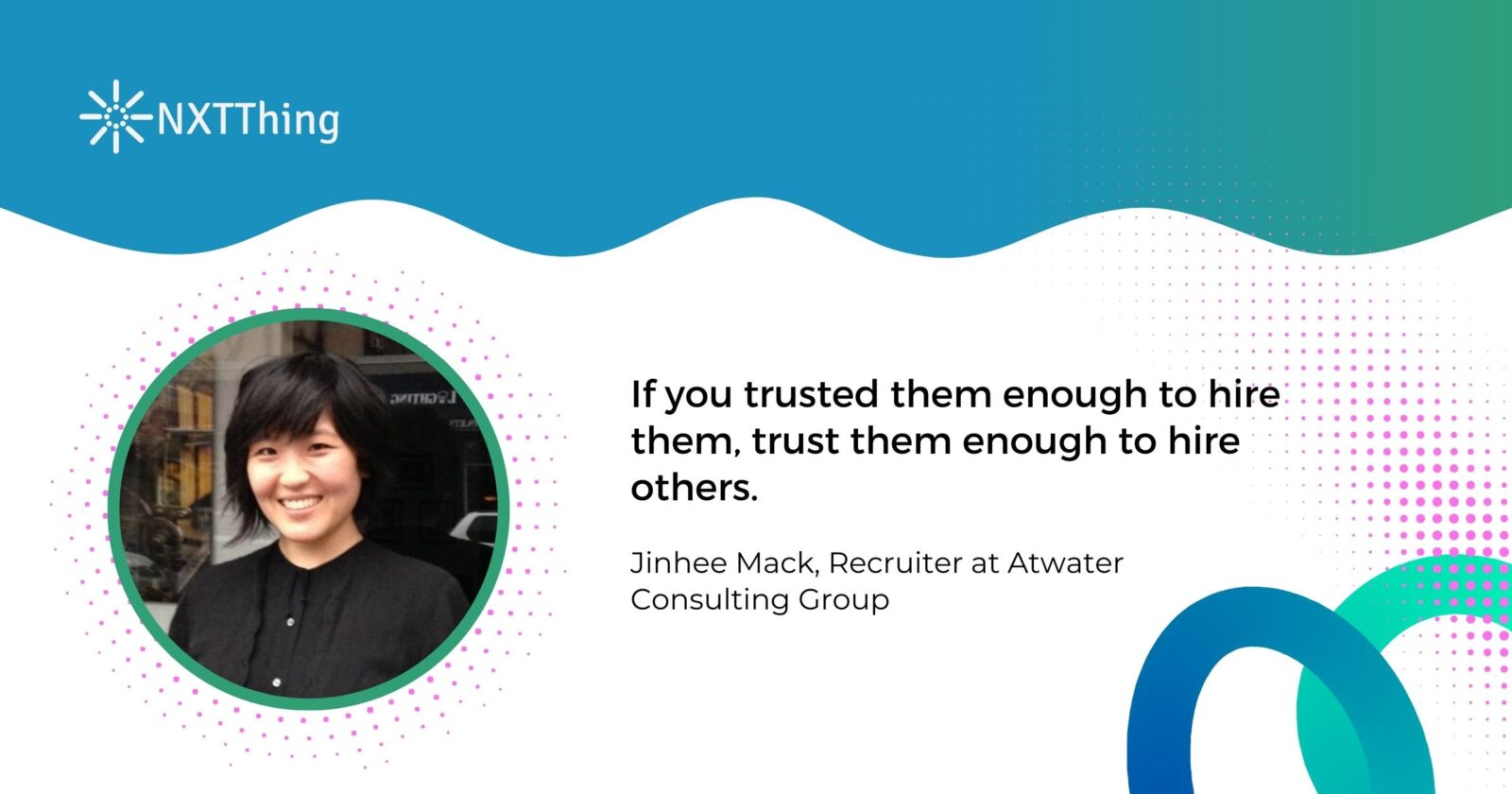Guest blog from Terkel.io
How involved should company leaders be in the hiring process?
To help you determine how leadership can contribute to the hiring process, we asked recruiters, CEOs, and business leaders this question for their best insights. There are multiple perspectives on how company leaders can play an effective role in driving a successful hiring process.

Here are 12 insights shared about how involved company leaders are in hiring efforts:
- Leadership Involvement Depends on the Size and Maturity of the Company
- Leadership Should Be Hands-On When It Matters Most
- Leaders Need to Be Involved in Connecting with Job Candidates
- Leaders Should Get to Know Every Employee If Possible
- Leaders Champion Their Recruiting Cultures
- Leaders Should Treat Candidates and Employees as Their Prime Business Asset
- Leaders Should Have a Degree of Oversight in the Hiring
- A Final Interview With Leaders is Crucial
- Leaders Should Be Very Involved in the Recruitment Process
- Leaders Can Trust Their Team to Conduct the Hiring
- Leadership Involvement Comes in at Various Stages Based on Company Decision
- Company Leaders Should Be Involved in Hiring Efforts
Leadership Involvement Depends on the Size and Maturity of the Company
To understand how involved company leaders should be in the hiring process, you first need to consider the size of the business. In a smaller business or start up, where the leader is still heavily involved in the day-to-day operation of the business, and trying to build a strong foundation for growth, they may want to meet final candidates to make sure they are the best person to help the company grow.
In a situation like this, the business leader may be involved in candidate debriefs and provide their input and engage with the other interviewers to guide the hiring decision. As the company grows, they begin to develop trust, and the owner or leader becomes further removed from the employee experience. In situations like this, if the leader has created an environment built on trust, the leader may not meet with candidates. Or, they may have a simple fifteen-minute introduction to get in front of the candidate, but they trust their teams to make the best hiring decision.
Eric Mochnacz, Senior HR Consultant, Red Clover

Leadership Should Be Hands-On When It Matters Most
For me, the appropriate level of involvement depends on the types of roles that are being hired into. For individual contributors, our leadership is involved in outlining the job requirements and responsibilities, but leaves the rest of the process to the HR staff. For higher-level roles, leadership is more involved. The last interview round will typically include relevant members of the leadership team, and company leaders are more likely to give direct input on candidate applications and screening qualifications. People hired into leadership roles will be making decisions that affect the entire company, and often work closely with company leadership to achieve our objectives and maintain the company’s vision. That makes it worth the time and effort to be actively engaged in the process.
Archie Payne, CEO, Caltek Staffing
Leaders Need to Be Involved in Connecting with Job Candidates
It’s critical for company leaders to have a high level of involvement in the hiring process. First, it helps them make a connection with job candidates, and ensures you’re recruiting talent that’s ready to make a lasting impact on your culture and business goals. It’s important to remember that job candidates are stakeholders too: by having the chance to meet leadership during the interview process, they’ll see the bigger picture of your company’s direction and how it fits their future goals. Our leaders are very involved in the hiring process from reviewing resumes, conducting interviews, and checking references: It is an essential part of our recruiting outreach.
Jessica Arias, Director of People & Culture, OnPay Payroll Services
Leaders Should Get to Know Every Employee If Possible
I think the most tight-knit companies and company cultures involve leadership in the hiring process. For example, for the first two years running my start-up, I interviewed every applicant across departments. I still like to involve myself in higher-level interviews, or interviews for specific roles, but unfortunately can no longer sustain interviewing every single candidate.
It is still my philosophy that leadership and executives should meet directly and maintain relationships with employees, but for start-ups, especially. It was one of my favorite experiences to meet so many foundational, talented professionals who I felt held similar values. Leaders must eschew unnecessary separation from those who work under them to really get a taste of who helps run their companies.
Kevin Miller, Co-founder & CEO
Leaders Champion Their Recruiting Cultures
Company leader involvement is vital in building a best of breed hiring process and Recruiting Culture. Leadership requires an intuitive understanding of the need to build and then continually strengthen a talent brand and culture if this brand and culture is to become a powerful competitive advantage. Senior leaders, on a rotational basis, could take on the dual role of “Chief Recruiting Officer” in order to give visibility to the Recruiting Culture and periodically report on its health through their version of a Recruiting Culture Scorecard.
While company leaders keep their eyes on the health of their employer brand and related employment value proposition, they must measure the effectiveness of their hiring process. In doing so, they keep marketing and recruiting staff, technology, policy and practices engaged in building and protecting their recruiting culture. Focus your hiring processes on building your talent brand. Higher profits? Hire Talent.
Bill Gunn, Principal Consultant, G&A
Leaders Should Treat Candidates and Employees as Their Prime Business Asset
When asked about business assets, leaders usually lead with performance numbers and funding. But the one asset that supports all success is the people, and if you don’t have a workforce that you handpicked, trust, and have good chemistry with, the domino effect takes place. Because of their oversight, leadership has the bigger picture and can see how a candidate can fit into that picture, or not. Our leadership is highly involved in our hiring efforts, giving the green light during CV screenings, and interviewing after the hiring manager to make sure they will be the right cultural fit.
Molly Sonenberg, Marketing Manager, DreamTeam
Leaders Should Have a Degree of Oversight in the Hiring
It is always beneficial to have some degree of oversight from leadership into the hiring process, but it is also important to delegate effectively. If you are building your company’s core team, it makes sense to be hands on as each decision you make now will have ripples of impact throughout the foundational months of your venture. But for more established companies, your ability to operate effectively without direct oversight is one signal of a healthy business.
Michael Burghoffer, CEO, PicoSolutions
A Final Interview With Leaders is Crucial
A final interview with a leader of the organization paves the way for more than just a great hiring decision. In addition to choosing the right candidates, the quality of candidates that make it through also gives leaders a peek into the workings of their hiring policy. If they find loopholes or gaps in the system or even identify ways in which the quality of candidates can be better, it’s easier for them to relay changes when they have their finger on the pulse. Moreover, at least one round of interviews with leaders is crucial when hiring senior personnel.
David Northup, CEO, InShapeMD
Leaders Should Be Very Involved in the Recruitment Process
Early on in my career, my mentor said to me, “it’s easy to hire, difficult to fire.” After 15 years in leadership roles, and now leading my own company with over 105 staff, I can tell you that statement is very true. Bad eggs can destroy a company culture, create a toxic environment and seriously impact company performance and morale. Conversely, great people are the backbone of great companies. Leaders should, therefore, be very involved in the recruitment process.
From designing the candidate screening process to interviewing, leaders should keep their finger on the “hiring dial” as their company scales. Obviously, as a company gets big, it’s increasingly difficult to maintain a close connection to the hiring process, but even then I would argue that leaders should at a minimum delegate to a trusted HR manager to oversee every aspect of the process.
Mark Whitman, Founder and CEO, Contentellect
Leaders Can Trust Their Team to Conduct the Hiring
A good leader surrounds herself with intelligent people and knows how to delegate. Don’t act as a bottleneck. If you trusted them enough to hire them, trust them enough to hire others. In doing so, you are essentially trusting yourself, since you made the decision to hire them. Furthermore, you are empowering them to make decisions for the company, which builds more loyalty and trust.
Jinhee Mack, Co-Founder, Atwater Consulting Group

Leadership Involvement Comes in at Various Stages Based on Company Decision
If you hire the right people that align with your company and personal values, then train those people to manage the interview/hiring process, then trust those people to make the right calls, then the leader does not need to be involved in the process.
At our firm, we have developed an interview process that allows for multiple decision-makers to be involved in discussions with the candidate. Each interviewer focuses on a different topic and then the team regroups once all interviews are complete to share feedback and make a final decision. Our VP (#2 in the organization) is the final interview to validate that we move forward with an offer letter. As the President of the company, I am completely out of the interview process and empower my team to make these calls. I “meet” new hires for the first time one week before they start and I spend 15-20 minutes on a video call with them to welcome them to the team and get to know them.
Charlie Saffro, President, CS Recruiting LLC
Company Leaders Should Be Involved in Hiring Efforts
Company leaders are highly involved in our hiring efforts. Without their insight and understanding of the culture and the role recruiters and managers would be hunting in the dark. We appreciate empathetic company leaders who work hard to define what they need and are able to make trade-offs if they need to.
Annie Collins, Senior Executive Recruiter, Westwood & Wilshire

Terkel creates community-driven content featuring expert insights. Sign up at terkel.io to answer questions and get published.





